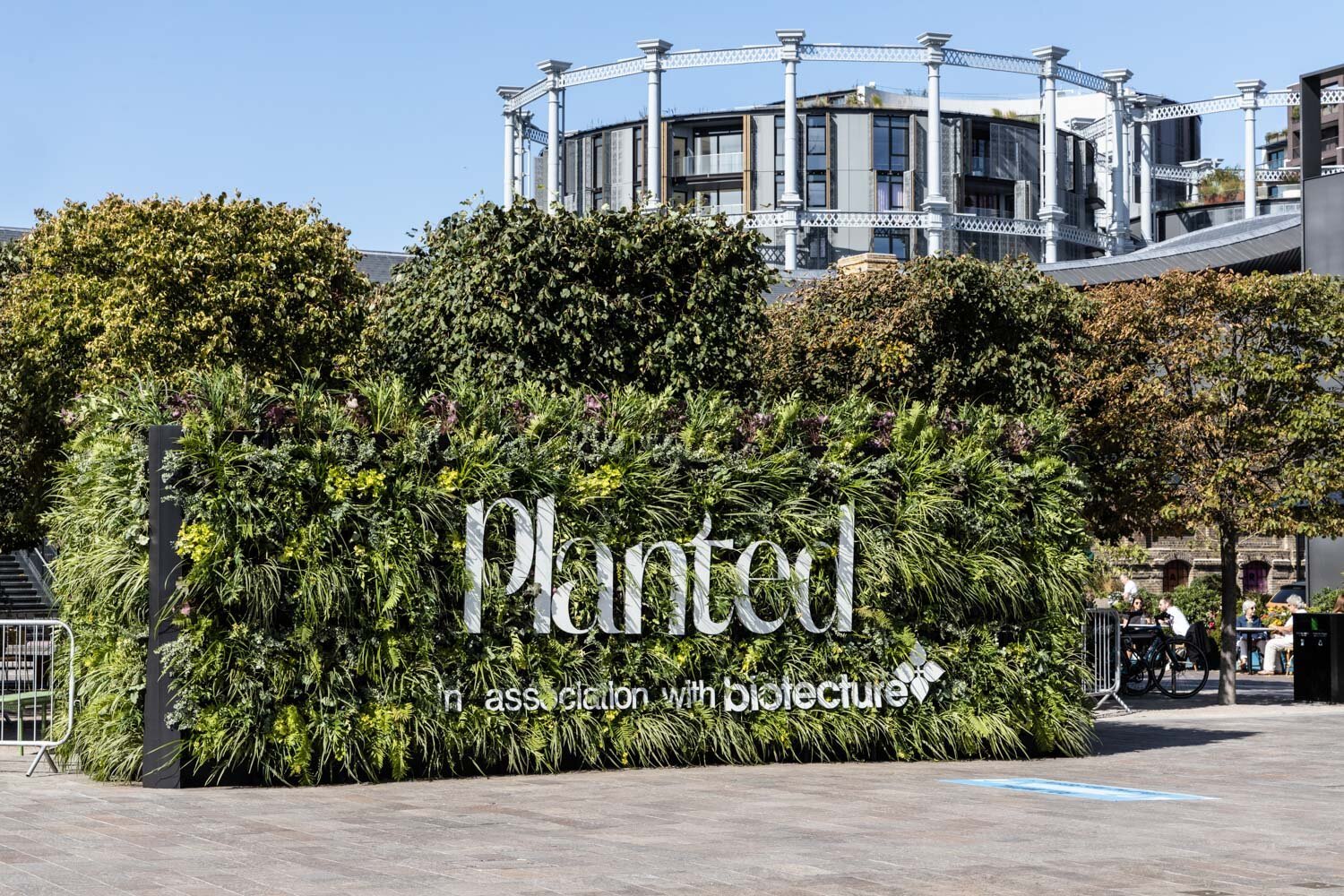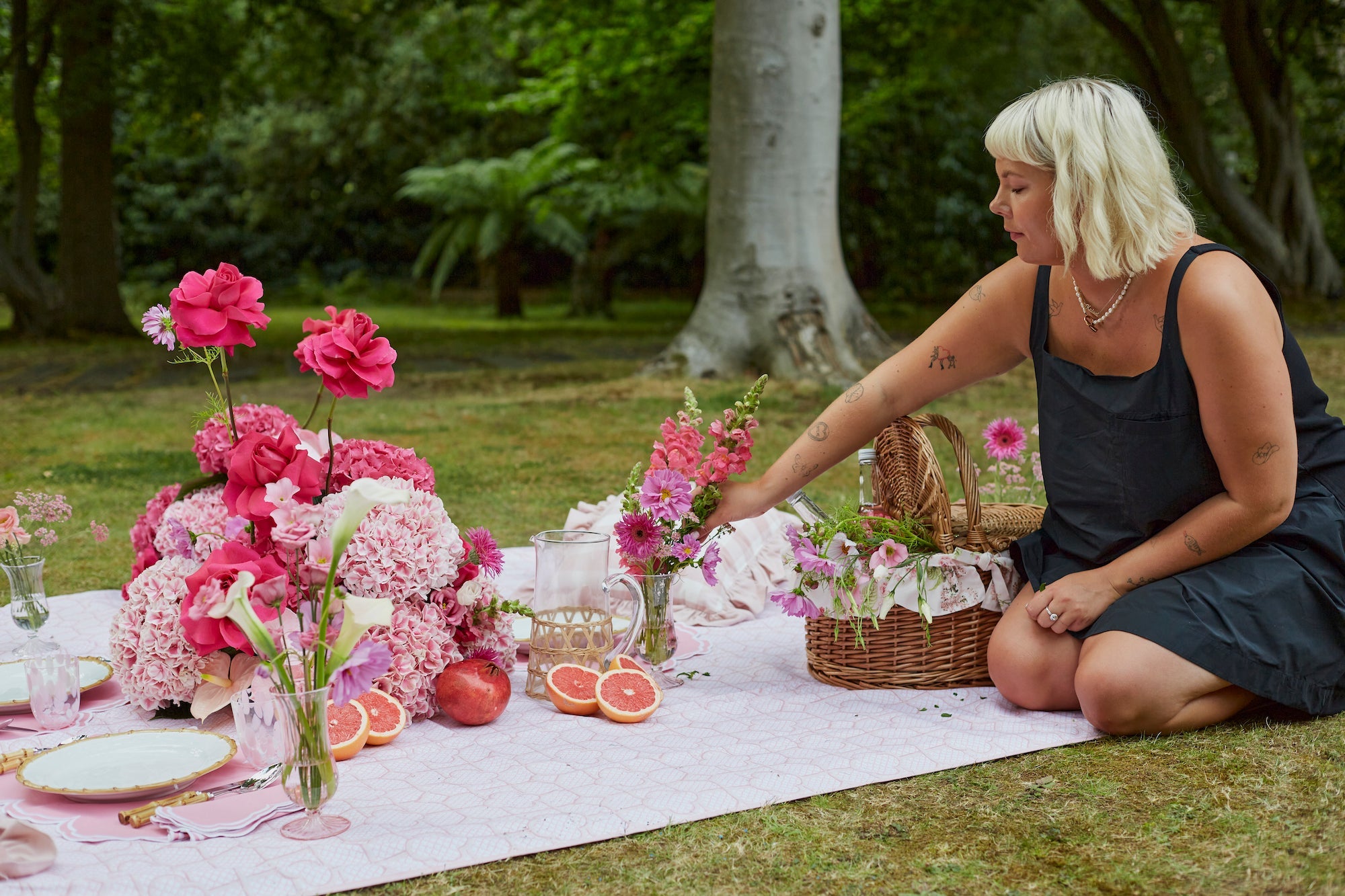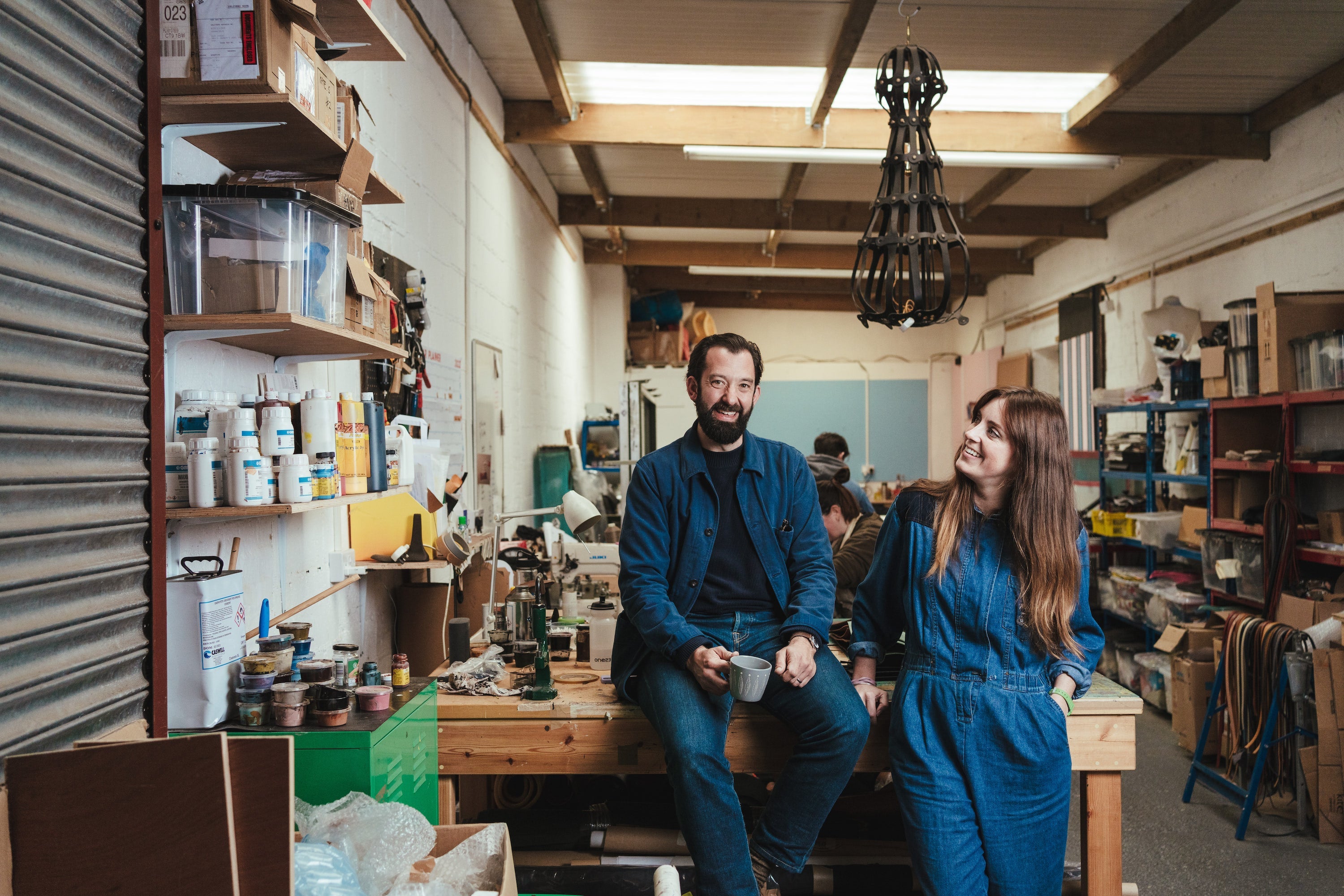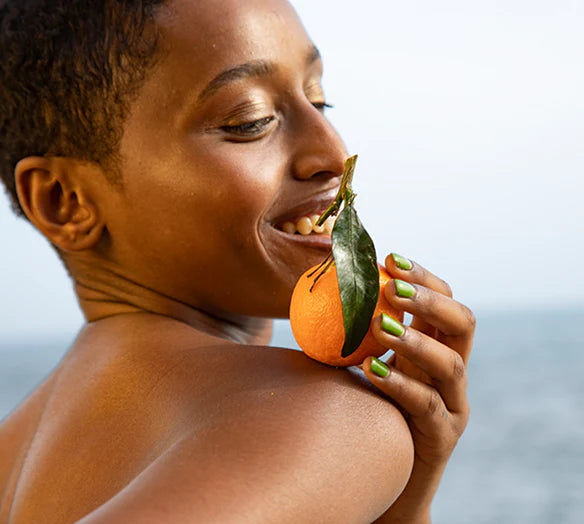We chatted to Sam Peters and Deborah Spencer of Planted - the first sustainable events and media platform promoting nature-based design. They explore how design, sustainability, food production, architecture and nature can combine to create cleaner, greener, healthier spaces. This coming Saturday KANKAN will be taking part in Planted's "Natural Abundance, Unnatural Waste" three day event in Kings Cross. KANKAN co-founder Mary McLeod will be taking part in a panel (Saturday Sep 24th) alongside Sam Boex (Flexi-Hex) and Marie Carlisle (Goldfinger) discussing packaging, waste, and carbon consumption. To learn more head over to Planted.

Can you tell us how Planted came to be? What is it that Planted does and does differently?
My wife Debs used to run a brilliant event called designjunction, which she set up in 2011. My background is in national media but my real passion has always been for the outdoors and nature. When our daughter Ella was born in 2017 we decided to work together to build a business which combined our loves of nature, design, events and media. Out of that idea, Planted has emerged and we are now the leading platform for nature-based design, promoting businesses and organisations who place the environment at their core while creating inspirational and educational content aimed at effecting positive environmental and societal change. While we talk a lot about environmental issues, we also try to walk the walk. As such we aim to run all our events with the lightest possible environmental footprint. We ask all stands and installations at our event must be reused, repurposed or recycled and we measure all our metrics when it comes to waste, energy consumption and travel. We have committed to send zero waste to landfill from any of our events and we’re very excited to announce this year’s Planted Cities event at King’s Cross will be run entirely by renewable energy supply. We are also in the process of measuring our entire business’ carbon footprint while working towards B-Corp certification.
Are you excited by the future of sustainable events? What innovations do you believe are ahead for the industry?
To my mind the industries where the worst environmental practices occur are also the ones where the greatest commercial opportunities are going to present themselves. Historically the events industry has been disgracefully cavalier when it comes to environmental concerns, especially when it comes to waste. There are some brilliant organisations now working hard to educate events organisers, many of whom have never considered trying to run events more sustainably. Slowly that is starting to change and hopefully Planted is part of that change. Having said that, it’s been disappointing to see a lot of the big events companies who shut down during Covid re-emerge with the same old “bigger is better” themes but only token gestures towards the environment. There are reasons to be optimistic, but also a lot of hard work ahead.

What are some of the challenges that you have had since you’ve been in business?
One of the biggest challenges unquestionably has been finding events suppliers and contractors who are prepared to tear up the old play book and look to the future. That is definitely changing, especially when it comes to things like solar energy supply and getting rid of those horrible diesel generators which have been a blight on the events industry for decades, but there’s still a lot more to be done. For the old school contractors they are just keeping their heads down and hoping for the best but there is a new generation of more innovative, progressive events industry professionals who see the future has to be more sustainable events which don’t destroy the finite resources of this planet.
What are some of the highlights?
One thing which has been so amazing about all the events we have run so far has been the sense of community and shared common ground which is the love of nature and good design. Our events are not like traditional trade shows where everyone is looking to out-compete each other in sterile, dull spaces. We try to create an energy and sense of shared purpose in a world where lots of people are trying to do the right thing but it can often feel like a lonely place to be. All our events have had a tangible feeling that we’re in this together, trying to design products, systems and solutions which improve and regenerate the planet. That sense was perhaps most noticeable at our last event Planted Country at Stourhead and we are constantly trying to grow that community aspect of Planted, introducing brands to other like minded brands in an effort to connect, learn and drive positive change. On a personal level, the calibre of the speakers we’ve been able to attract for all our events and Planted Unearthed conversations has been really humbling.

What does a typical day look like at Planted HQ?
Busy! We are a small team and when you are a husband and wife partnership you have other considerations apart from business ones which need prioritising too. We really do try to live equal lives when it comes to looking after our daughter Ella and taking care of the house while also running a fast-moving and dynamic start up business. It’s not always easy but we are finding a way to make it work. Typically, after one of us has dropped Ella at school, we’ll have a quick meeting together at the start of the day, followed by calls to our team, most of whom work remotely, before getting going with a round of face-to-face or Zoom meetings, depending on where we are in the event cycle of that year. We are very lucky to work with some amazing companies who are based in amazing locations, notably the National Trust at Stourhead and River Cottage, which are two of our favourite places for meetings!
What are the next 5 years looking like for Planted?
Great question! We aim to build on the success of our events and media activations and the amazing community of nature-loving design folk who now follow Planted and partner with us. We want to continue to develop our relationship with the National Trust, building on the success of this year’s Planted Country event while also keeping a foothold in London at King’s Cross or elsewhere. We’re also going to develop our editorial content further by looking to create a physical magazine as well. In terms of growing the business and building new revenue lines, we may well go out for investment next year as we have four or five strong ideas which we believe could add significant value to the business, while diversifying and de-risking at the same time, which I’m personally really excited about. They will need an injection of cash to make them happen though, so a crowdfunding round is a definite possibility.

Is there a goal where you feel the business has succeeded or fulfilled its mission?
I think we’ve proved the demand for nature-based design and that there is a community of people who feel passionately about good design and the environment. That community is growing all the time and we want to facilitate that and be part of that. We’ve also proved we can generate high-quality editorial content across all the events we’ve run so far.
Are there any businesses you’ve worked with who place nature and the environment at the heart of their business who you would like to shout out?
So many it’s hard to know where to start! We value all our partners incredibly highly but of course there are one or two who stand out. Personally I’m a huge fan of Riverford Organic Farmers for the way they have set up to be circular and environmentally focused across their business. Flexi-Hex are a really cool new packaging company and Camira have also done some amazing work in the world of plant-based fabric and textile design. Five Rivers are a really interesting environmental consultancy and contractor and from a design side, Another Country, Benchmark and Vestre are just a few of the amazing furniture companies we work with. From a landscaping perspective, Sedum Green Roofs are very cool and HTA Design have done some amazing urban rewilding projects which I’m a huge admirer of. And KANKAN are amazing, of course!!

Can you share any tricks or tips that you do to lighten your carbon footprint or improve your sustainability outside of your work life?
Home composting is a really easy way to reduce waste and food miles and cut down on carbon emissions too. We’ve recently had a green roof installed at home to help insulate our house in winter and keep it cool in summer and we’re looking at other ways of better insulating our home over this winter as energy bills rise. I’m constantly trying to reduce waste in our household and avoid unnecessary car journeys wherever possible. But I think the best tip to reduce carbon footprint is; buy less stuff!! We are all guilty of falling into the consumer trap and buying things we really don’t need and we end up throwing away. Much better to spend a little more money on something which is quality and lasts a long time!





Leave a comment
This site is protected by hCaptcha and the hCaptcha Privacy Policy and Terms of Service apply.